Elizabeth Ramirez’s face shines as she looks at all her son’s sports trophies hanging on the wall in her North Side basement. She has gathered eight family members and friends on a Monday evening earlier this spring to watch videos of her son, Harry Rodriguez.
He was killed Oct. 23, 2011 – a week before his 24th birthday.
Rodriguez’s loved ones laugh as they watch him perform Footwork, a popular Chicago dance. There are scenes of Rodriguez as quarterback of the Mather High School football team, working at Circuit City and on a date with his girlfriend.
Ramirez says she feels empty every day without her son, who was shot by a suspected gang member in the Belmont Cragin neighborhood at his own surprise birthday party.

“I don’t accept my son’s death” she says. “Sometimes I pray to God for this to be a bad dream.”
To make matters worse, she says gang members have harassed her for going public in the search for her son’s killer.
Her voice shaky and her hands trembling, Ramirez recalls the phone call from her sister telling her about the shooting, which happened in an apartment in the 2000 block of North Leclaire Avenue.
She prayed to God not to take her son as she drove to the hospital, but by the time she got there, he was already dead.
Ramirez pieced together what happened that night from family members and friends who were at the party: Rodriguez died a hero, they told her.
She says gang members who intruded on the party aimed a gun at one of her son’s younger cousins, but Rodriguez pushed the boy back and took a bullet to the chest.
A resident in the building where Rodriguez was shot, who didn’t want to be identified because he fears for his safety, says he talked with the suspected gang members after the shooting.
They told him they mistook Rodriguez’s cousin for a man they had argued with before the party because the cousin was wearing the same color hoodie.
The neighbor says he saw Rodriguez run across the street after he was shot and collapse.
Rodriguez’s family moved out of the neighborhood that same week.
Hundreds of people attended Harry Rodriguez’s memorial services. Yanko Jordanoff, a football coach at Mather High School, recalls the school’s head coach presenting Rodriguez’s jersey to his mother at the funeral.
“That was one of the hardest things to watch,” he says.
Jordanoff remembers his former player as playful, always smiling and a good-hearted kid.

Other family members describe Rodriguez as an inspiration to them.
His younger cousin Mario Ramirez says he joined the Calvin Park youth football team because Rodriguez was the coach.
“Losing him was like losing half of my soul,” Mario Ramirez says. “He would always tell me to go to college. When I finally I got there, I kept hearing his voice in the back of my mind.”
Elizabeth Ramirez says detectives from the Chicago Police Department told her to give them six months to find the killer. It has been 19 months.
Heartbroken and desperate, Elizabeth Ramirez called police earlier this year for an update on the case. She says the department had assigned the case to a different detective since she had last heard from them.
Chicago Police Department officials did not respond to a request for information about the case. However, spokesman Adam Collins, did provide a written statement responding to general questions about unsolved cases.
“The Chicago Police Detectives work tirelessly to solve every murder, bringing justice to criminals and closure to victims and their families,” reads the statement, in part. “Every murder, whether it happened last week or last year, is investigated with the same thoroughness.”
After her son’s death, Ramirez went on local TV stations, including CBS Chicago, Telemundo Chicago and WGN, to advocate for anti-violence policies and demand justice for her son.
Her television appearances brought a violent response from local gang members.
Ramirez says less than a month after her son was killed, she was stopped at a red light when she noticed three menacing-looking men approaching her car.
“One of them hit my car with a bat,” she says. “He told me, ‘If you don’t stop, you’re going to be the next one.’”
Ramirez says she became so paranoid after that encounter, she had to leave her job of 10 years as a custodian at a local laundry She found herself jumping every time someone opened the door.
The family now relies solely on her husband’s income.
“I’m scared to leave the house most of the time,” she says. “I can never go out on Saturdays again because that’s the day my son was killed.”
This story is part of a week-long series about homicides in Chicago. ChicagoTalks, a news outlet operated by Columbia College’s Journalism Department, undertook a semester-long investigation of the topic funded with a grant from The Chicago Community Trust. ChicagoTalks is publishing additional stories throughout the week. If you have questions or comments, please e-mail project editor Suzanne McBride at smcbride@colum.edu.
Read more from this series:
- Argument over basketball game takes parents’ only child
- Family seeks answers after 8th grader’s murder
- Family, friends of murdered Uptown businesswoman say they have been left in the dark
- Killer on the line
- Lonely anniversary
- For some, the grieving never ends
- Families say silence the norm after Chicago homicides
- Homicide victim’s mother sees progress in Englewood
- Giving up on justice
- Families question support after loved ones’ killings
- Unsolved homicide not forgotten
- Final call to a friend









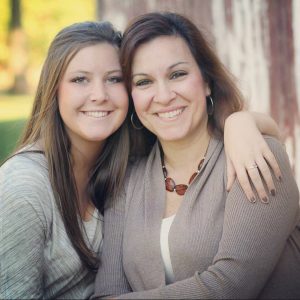
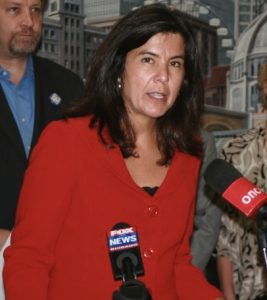







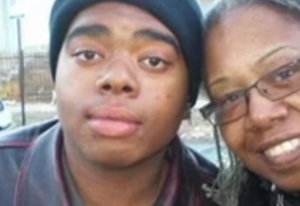
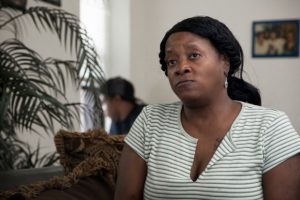
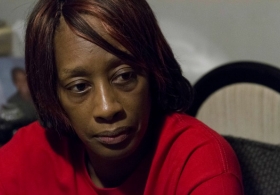


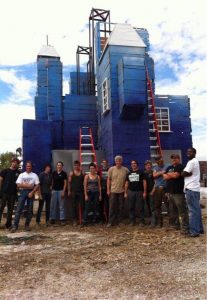

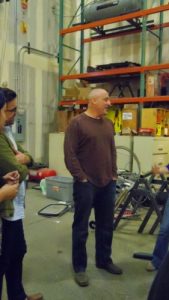
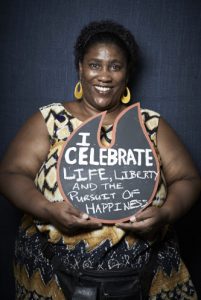

Be First to Comment